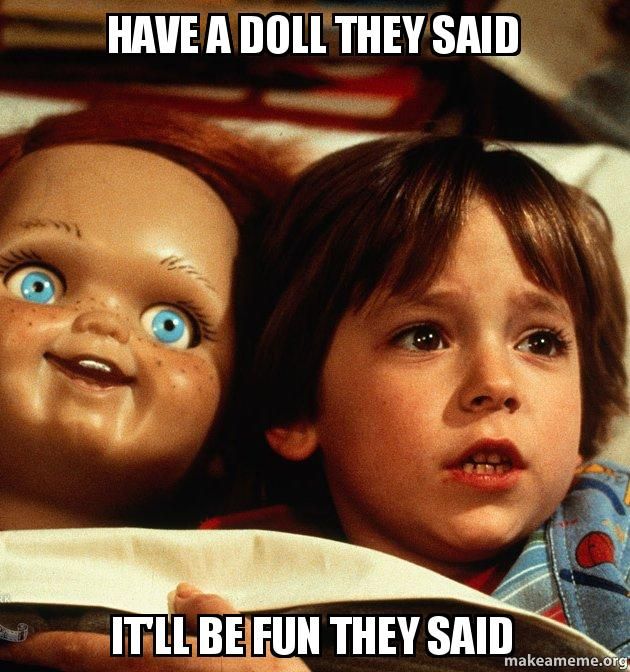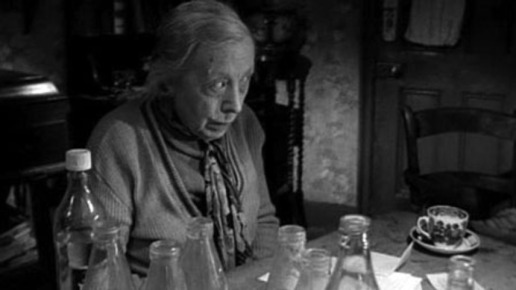Macario (1960) (subtitles)
3.40 out of 4stars
“In 18th century Mexico, poor and hungry peasant Macario wishes to have a good meal for All Saint's Day all by himself and away from his family on a mountain. After his wife cooks him a turkey, he alone sees 3 apparitions: The Devil, God, and the Death, giving him a life changing experience.”
An excellent supernatural drama that is a morality and mortality tale, stuffed full of biblical metaphors. A seemingly simple but strong and meaningful parable story. One major theme is death. No matter how wealthy or powerful one is, everyone dies and gets sick, some in short and random order. Whether nature’s order or God’s order, all face the reality that life is fragile, brief, hard, and delightful. Time and health are the 2 most valuable commodities on this mortal plane. The other major theme is morality. “In the eyes of God, the Devil, and even Death”, what we choose to do given the cards we are dealt and situations we are in creates the person we are, and if you are christian/Catholic as described within the film, decides our eternal fate and judgment as well post-death. That triumvirate, religion aside, interestingly determines every action a person makes: selfless (God/good), selfish (Devil/bad), or self-preservation/survival (Death/indifferent). In God’s eyes, where is that selfless line drawn? Is prestige a sin or secularly make one a target? Is material wealth a sin, even if gained through positive acts that help many people? There is also some clear condemning of the Catholic Church in the film for their hypocritical actions and conflict of interests stemming from the involvement and influence from some unification of church and state. Saying more will spoil part of the film or other biblical metaphors throughout, so I’ll leave it at that. Some other themes include fate and class differences, including wealth inequality and its impact on living conditions (excesses/indulgences and survival/minimalism at both extremes). Also known for being the first Mexican film to be nominated for an Oscar, in the best foreign language film category.
Skeleton of Mrs. Morales (1960) (subtitles)
3.20 out of 4stars
“A cheerful taxidermist is trapped in a marriage with a religious and emotionally unstable manipulative woman, so he plans to carry out the perfect crime after 20years of suffering and being pushed to the brink.”
A great black comedy drama with horror and crime elements that is both funny and subtly alarming. The joyful easy going husband and criticizing overstrung wife dynamic play off each other well, especially with their outside lives and external impacts filling out their personas. The biggest thematic takeaway, aside from be careful who you marry, is the power of public image and distortion possibilities of one’s homelife behind closed doors. The scary truth is that how someone acts in public or portrays themself in public may not actually be the person they are at home or with their family, possibly even polar opposites. Even scarier, someone may lie about how their spouse or children or other persons they live with or spend private time with acts and behaves, creating another possible polar opposite of one person’s actual self vs their projected image into other’s minds. Those 2 combined, what we see in the film, are a totally manipulative/reality-warping mindscrew, that a harmed party may not even be aware of. And it’s truly alarming enough that 1 of those things, let alone both actually happen in households across the world for various reasons. I won’t spoil anything, but public image becomes critically important under some circumstances, while already being personally important and impacting as it is. There also seems to be a bit of mockery on religious extremists in this regard as well, in a hypocritical and distortion sense. Finishes with a hilariously dark ending. Also touted as being a satire of melodramatic films, which I definitely see.
Sleep Tight (2011) (subtitles)
3.00 out of 4stars
“César is the concierge of an apartment building and keeps very close tabs on the tenants. His only joy in life is inflicting pain and agitation on tenants, and the woman in apartment 5B is his new and difficult target to crack.”
A great psychological thriller horror that is an unsettling tale of closet sadistic obsession. Lives on its creepy atmosphere and committed slyly evil performance from Tosar, alongside a tense and surprising final third of the film. A pre-camera ladened era, so one has to consider that when watching the film with a slight suspension of belief on a couple things. While the evolution of plagues hit marks, it’s truly frightening how subtle misfortunes go unquestioned and unanalyzed in our daily lives. It does a good job of exploring the somewhat overlooked vulnerabilities one has while sleeping and from those with access to their apartment or home. When we are asleep we are defenseless and people who have access to our homes have seemingly limitless possibilities for generating evil into our lives, that includes multiple fairly unknown people for those that live in apartments, who may or may not be psychologically ill or unstable. Which brings us to the exploration of mental illness here, which is portrayed as genetic and having existential implications (which in itself, the examination of existential implications with the mentally ill, is a very discussion worthy topic). Both sad and disturbing, as we our protagonist as suicidal whose only purpose and joy is acts of non-sexual sadism. This is another unraveling film, so I won’t say more to spoil it for those interested.
White Dog (1982)
2.80 out of 4stars
“After an actress adopts a stray White German Shepherd she found in the street, she notices the dog’s aggressive behavior and brings it to a black animal trainer. The trainer tells her the dog’s been raised to attack black people, “a White Dog”, and that he wants to try and reprogram and cure it.”
A great drama horror that is an interesting critique on racism. For some reason, a couple of the scenes really hit me involving the dog and had me feeling emotionally reactive, whereas the vast majority of movie violence and harm I generally have a cold analytical response to. Part filmmaking effectiveness but I’d say it’s more so because animals, similarly to very young children, are innocent and ignorant beings. True comprehension doesn’t exist for them, and they are highly impressionable on top of it. It was an excellent metaphor/idea to use a dog to get the film’s point across, especially since dogs are colorblind. The main theme is about how racism should be addressed and is it a curable disease. Hate breeds more hate and violence, and retribution or punishment is not a true solution to the problem as a whole. The trainer in the film tries to use deconditioning behavior therapy to fix the dog, as if it is a mental illness, metaphorically translating to education and exposure. Because racism is learned, unteaching it on a wide scale is the real answer in theory. Whether that is possible is a different story, and an interesting case with the White Dog in the film who’s hinted at backstory is sympathy-inducing and an understandable causal case.









